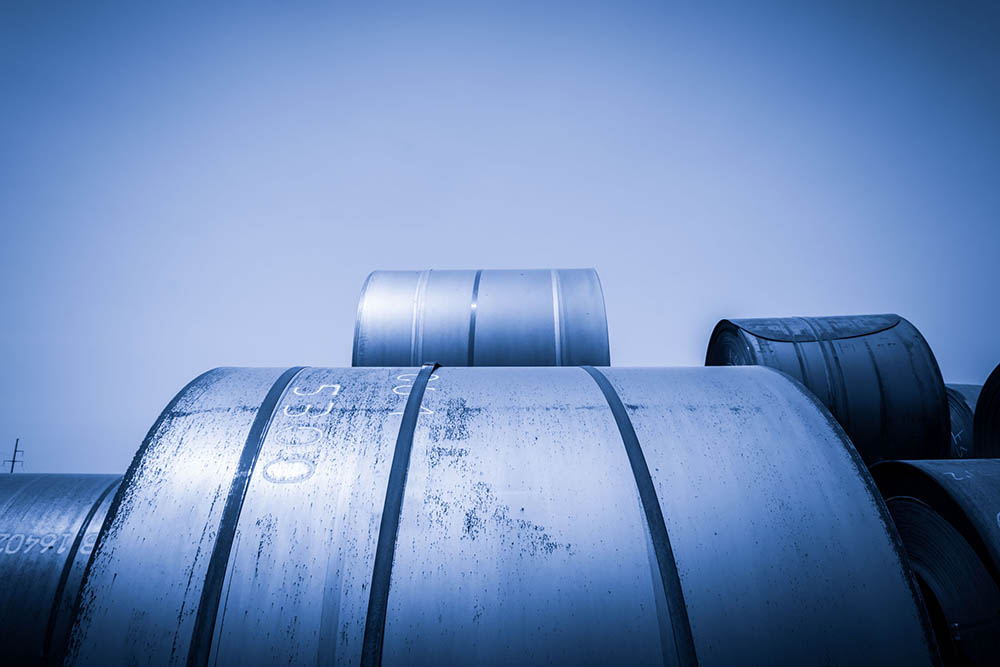Cover will not be available if, from time to time, Gard determines that the quality of the pre-shipped steel and stevedore operations do not justify the PLSS cost. An example where our data shows that quality and stevedore operations do not justify costs is Japan. Thus, no cost cover is the default position for pre-load surveys in Japan, unless otherwise agreed on a case-by-case basis.
As stated in our Gard’s Insight on the 2016-17 policy for Pre-Load Steel Surveys (PLSS) the aim was to improve our intelligence and data on PLSS with a view to having a more informed cost/benefit policy. We also aimed to obtain a better overview of the cost of surveys. Extrapolation of data suggests that Gard will end up having assisted Members in arranging over 800 PLSS during the 2016 policy year, at an average cost of around USD 2,000 per survey. The actual cost depends on the location and quantity of steel. Our handlers will, however, be provided with data that should assist in their continuing efforts to ensure that survey work is reasonably priced.
Data for the 2016 policy year suggests that Gard has no more than 100 cases for Members involving steel damage, many of which involve an incident during the voyage, such as water ingress, condensation or cargo shift. There are, however, some cases where there is no apparent incident, yet claims have arisen and for those the PLSS is often of value in avoiding liability for pre-shipment damage. If the ratio of claims to PLSS surveys is 1 in 8 as the above figures suggest, this may further support the views of Members, as per the survey mentioned in our 2016 Insight:
We believe the PLSS remarks are being used in the cargo sales process to avoid/deter claims
The PLSS maintains a necessary degree of discipline with shippers and stevedores to minimise any pre-load defects/damage
The PLSS is used to recover from charterers where they have issued unauthorized clean bills without PLSS remarks.
In other words, whilst the full benefit of PLSS is difficult to measure, Gard continues to take the view that the surveys contribute to good loss records and costs should therefore continue to be covered. Gard is also mindful of the continued challenging market for owners and withdrawing cover may result in PLSS not being undertaken, which could see a rise in claims.
The updated policy can be found below.
Gard continues to recommend cost sharing with charterers, using the clause set out in the 2016 Insight. Where this has been agreed, Members will be debited 50 per cent of the survey cost so that this can be properly accounted for.
Gard also continues to encourage Members to provide feedback to Gard’s claims handlers on the need for surveys in specific trades where the Member is involved and to work with our claims handlers to make the handling of PLSS more efficient.
The Gard PLSS policy
Cover for 100 per cent of the cost of the PLSS (after any contribution from charterers), to go on the loss record, without application of deductible, providing the PLSS remarks are incorporated in the bill or, where not incorporated by charterers without owners consent, they are inserted in the Mate’s receipt and the Master’s Letter of Authority explicitly states that the bills are to be signed strictly in accordance with the Mate’s receipt.
Members can choose to opt in or out of the policy. Whilst the policy principally applies to owned entries, it is also available to charterers who may be deemed carriers under the bills and/or who may face direct charterparty claims for damage to steel. However, cover is not available if Bills of Lading do not accurately reflect the PLSS remarks.
While Gard recommends a PLSS on finished steel products (listed below), failure to carry out such a survey does not prejudice P&I cover. However, cover may be prejudiced if the Master or Member knows that the bill of lading contains an incorrect description of the cargo or its quantity or its condition - see Gard Rule 34.1 proviso ix
The covered survey cost for finished steel products is available for full or part cargoes but is limited to determining the condition of the cargo at the time of loading. Its scope does not extend to pure tallying, handling, stowage, securing of the cargo or to cargo-worthiness/seaworthiness of the ship. However, if a defence of a covered claim is based on such elements, cover for the survey cost will be considered (subject to deductible and terms of entry). The same applies to steel outturn surveys.
Cover is not provided for the cost of low-value and semi-finished steel products. These include products such as steel billets, blooms, slabs, scrap, swarf and pig iron. Members and clients with questions about products not mentioned in this Insight should contact Gard for assistance.
If, from time to time, the Club takes the view that the quality of pre-shipped steel and stevedoring operations do not justify the PLSS survey cost, cover will not be made available. This will be the default position for Japan, unless otherwise agreed cases by case.
List of finished steel products
Hot rolled steel in coils or bundles
Cold rolled steel in coils, packs or bundles
Galvanized steel
Stainless steel
Tin plates
Wire rods
Steel pipes
Structural steel (rebars, channels, angles, beams, bars, strips, sections, forgings).
This article is also available in Japanese: 鋼材の船積み前検査に関するGardの方針、2017/2018保険年度は若干の変更あり



